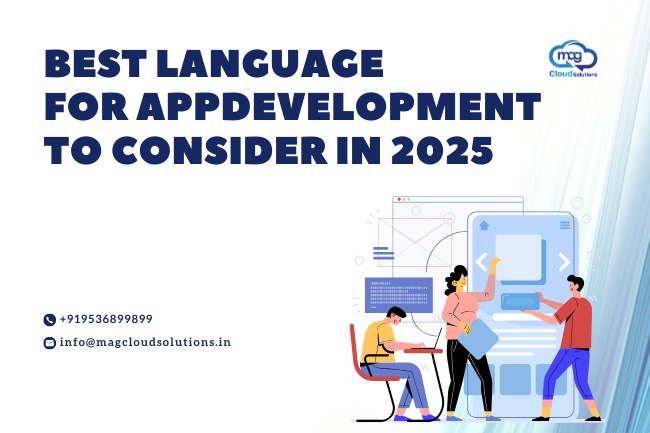As technology evolves, so do the tools and languages developers use to create cutting-edge applications. In 2025, the app development landscape is more dynamic than ever, with several programming languages standing out for their efficiency, scalability, and ease of use. Whether you’re a budding developer or a seasoned professional, choosing the right language can significantly impact your project’s success. Let’s explore the best languages for app development to consider in 2025.
1. Swift
Best For: iOS App Development
1 Why It Stands Out:
1 Apple’s Preferred Language: Swift is the go-to language for iOS, macOS, watchOS, and tvOS apps.
2 Fast and Safe: Designed to be fast and efficient, Swift also emphasizes safety by eliminating common programming errors.
3 Community Support: With a strong developer community and continuous updates from Apple, Swift remains a top choice for iOS developers.
2. Kotlin
1 Best For: Android App Development
2 Why It Stands Out:
Official Language for Android: Endorsed by Google, Kotlin is fully compatible with Java, making it easy for developers to transition.
1 Concise and Powerful: Kotlin reduces boilerplate code, allowing developers to write more expressive and concise applications.
2 Interoperability: Its interoperability with Java means it can be used alongside existing Java codebases.
3. JavaScript
1 Best For: Web and Cross-Platform App Development
Why It Stands Out:
1 Versatility: JavaScript is essential for web development and is increasingly used in mobile app development with frameworks like React Native and Ionic.
2 Huge Ecosystem: A vast array of libraries and frameworks makes JavaScript a flexible choice for developing interactive and dynamic apps.
3 Strong Community: With a massive community, finding resources, tools, and support is effortless.
4. Python
Best For: AI-Powered and Backend App Development
Why It Stands Out:
1 Ease of Learning: Python’s simple syntax makes it a favorite among beginners and experienced developers.
2 AI and Machine Learning: With libraries like TensorFlow and PyTorch, Python is a powerhouse for AI and machine learning applications.
3 Backend Development: Frameworks such as Django and Flask streamline backend development, making Python a versatile choice for web apps and APIs.
5. Dart
Best For: Cross-Platform App Development
Why It Stands Out:
1 Flutter Framework: Developed by Google, Dart powers Flutter, a popular framework for creating natively compiled applications for mobile, web, and desktop from a single codebase.
2 Fast Development: With features like hot reload, developers can quickly iterate and refine their apps.
3 Growing Popularity: As Flutter’s adoption increases, Dart’s importance continues to rise in the app development community.
6. Rust
Best For: System-Level and Performance-Critical App Development
Why It Stands Out:
1 Memory Safety: Rust ensures memory safety without needing a garbage collector, making it ideal for performance-critical applications.
2 Concurrency: Its focus on concurrent programming helps developers build efficient and reliable apps.
3 Growing Demand: Rust’s use is expanding beyond systems programming to areas like web development and game development.
7. C#
Best For: Game Development and Enterprise Applications
Why It Stands Out:
1 Unity Game Engine: C# is the primary language for Unity, one of the most popular game development platforms.
2 Versatility: C#’s use in developing Windows applications and cross-platform apps with Xamarin makes it a robust choice.
3 Mature Ecosystem: As part of the .NET ecosystem, C# offers extensive libraries and tools for various development needs.
Conclusion
Choosing the right programming language for app development in 2025 depends on your project’s specific needs, the platform you’re targeting, and your development team’s expertise. Swift and Kotlin dominate native mobile app development, while languages like Python and Rust cater to backend and performance-critical applications. JavaScript and Dart lead the way in cross-platform development, ensuring developers can create versatile and powerful apps.
As technology continues to advance, staying updated with the latest trends and tools will ensure your app development projects remain competitive and innovative. Whether you’re developing for mobile, web, or desktop, the languages listed above offer the tools and capabilities to create outstanding applications in 2025.






